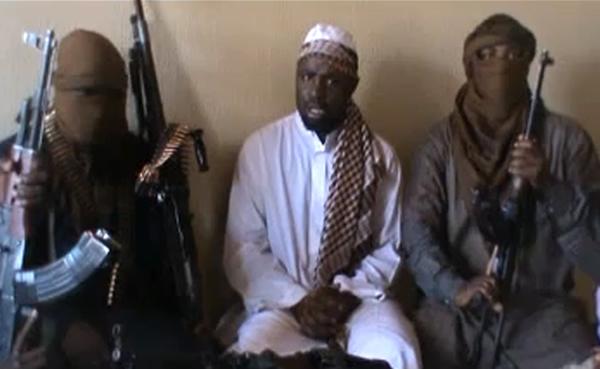
On November 13, two Subcommittees in the US House of Representatives – Africa, Global Health, Global Human Rights, and International Organizations and the Subcommittee on Terrorism, Nonproliferation, and Trade – will hold a joint hearing to discuss the threat posed by Jama’atu Ahlis Sunna Lidda’awati wal-Jihad, better known as Boko Haram. In the wake of persistent and heinous attacks on civilians perpetrated by its militants, most recently an attack on a wedding party claiming 30 lives, Congress looks poised to propose legislation compelling the US State Department to label Boko Haram as a Foreign Terrorist Organization (FTO). When debating this legislation Congress should be asking not if Boko Haram is a terrorist organization, but does this legislation contribute to promoting human rights and security in North-East Nigeria?
In June 2012 the US State Department labeled Boko Haram leaders, including Abubakar Shekau, Abubakar Adam Kambar, and Khalid al-Barnawi, as Specially Designated Global Terrorists, but it has so far resisted pressure to add the organization to the FTO list. Many Nigeria watchers in Washington, including former Ambassador John Campbell, have backed the US State Department’s approach, arguing that “it [Boko Haram] does not pose a threat to the American homeland” at present, and that “Americans could become a Boko Haram target” if the US government is perceived as closely aligning with Abuja’s war against the group.
Despite these concerns, many in Congress are likely to argue that the United States cannot tolerate a radical insurgency that burns down schools, shoots students, and decapitates motorists. Designating a group as an FTO introduces new tools designed to combat the organization, including financial restrictions, and disincentivises organizations or individuals from associating with it. The potential impact proposed legislation will have in weakening Boko Haram is, however, unclear. Those individuals and organizations likely to be associating with, and/or funding, Boko Haram at this time are unlikely to be swayed by US disapproval. Several of Boko Haram’s potential associates are already proscribed by the US government.
Nonetheless, ascribing Boko Haram to the FTO list sends a clear message to Nigerians and the global community that the US is appalled by the group’s actions. In principle, those pushing for legislation in Congress are correct: Boko Haram is an organisation that indiscriminately commits gross acts of terror against the government of Nigeria and average Nigerians alike, and the US should condemn terrorism wherever and whenever it occurs, while simultaneously supporting human rights.
The real issue is not that the legislation would force the US State Department to call a spade a spade, but that such legislation ignores the other half of the equation. Legislation that deems Boko Haram to be a terrorist organization does nothing to curb the Nigerian government’s human rights abuses in the North-East. Moreover, the Nigerian government would likely interpret the legislation as an endorsement of the current tactics it employs in its campaign to subdue Boko Haram.
Recent Amnesty International and Human Rights Watch reports suggest, and a broad cross section of Nigerian civil society organisations confirm, that the Nigerian military is guilty of committing abhorrent acts of violence against the population in the North-East states. Amnesty documented nearly 1000 deaths in Nigerian prisons, largely of suspected Boko Haram detainees, in 2013. Meanwhile, Human Rights Watch asserts that almost half of the 4,700 fatalities associated with the Boko Haram crisis over the last several years are the victims of security force violence.
The failure of the Nigerian state to guarantee the human dignity of its citizens in the North-East states, whether in reference to development needs or basic human rights, is what enabled this current conflict to spiral out of control in the first place. Congressional legislation compelling the US State Department to condemn the violence perpetrated by Boko Haram, while failing to condemn that carried out by the Nigerian state, runs the risk of creating three negative ramifications that undermine US Foreign policy in Nigeria.
First, this legislation could feed into the suspicions held by some Nigerians that the United States is siding with the Jonathan Administration over the Nigerian people, and/or with Nigerian Christians over Nigerian Muslims, thus diminishing the good will felt by substantial portions of the Nigerian population towards the United States.
Second, it reinforces a perception that the United States only works to protect human rights when it serves US interests, limiting the US government’s ability to combat extremism and promote human rights.
Last, and perhaps most important, condemning Boko Haram violence while turning a blind eye to state abuses perpetuates an environment that fosters violence and instability in Nigeria, that if left unchecked may actually threaten US interests in the long run.
If Congress is concerned by the human rights violations and widespread insecurity in North-East Nigeria, and feels compelled to label Boko Haram as a Foreign Terrorist Organization, it should also formally reproach the Nigerian government for its gross human rights violations, demanding accountability – including criminal prosecutions of military personnel involved in human rights abuses—and encourage a human security centered approach to restoring order.
No comments:
Post a Comment